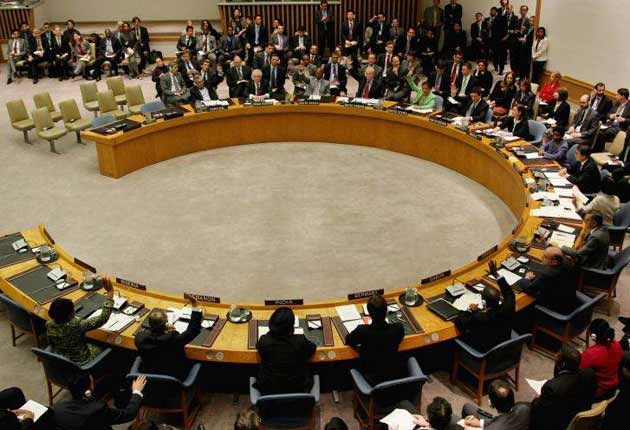Saudi Arabia turns down seat on UN Security Council amid rift over Syria war
Foreign ministry says kingdom won't join the Council 'until it has reformed so it can effectively and practically perform its duties'

Saudi Arabia has rejected a non-permanent seat at the UN Security Council, over disaffection with its handling of Middle East issues, including Syria's civil war.
The snub is another gesture of ill-will from the US ally, whose foreign minister cancelled a UN speech earlier this month in frustration over Syria and the international community's failure to find any resolution in the Israel-Palestine dispute.
The Security Council has fifteen members. The five permanent members - Britain, the United States, France, Russia and China - have power of veto.
On Thursday Saudi Arabia was elected by the UN General Assembly to serve a two-year term as a non-permanent member, beginning on 1 January 2014.
Also elected were Chad, Chile, Lithuania and Nigeria.
But a Saudi foreign ministry statement issued on state media said: "Saudi Arabia ... is refraining from taking membership of the UN Security Council until it has reformed so it can effectively and practically perform its duties and discharge its responsibilities in maintaining international security and peace."
Saudi anger at the international response to Arab issues boiled over after Syria's President, Bashar al-Assad, escaped US-led military strikes in response to a chemical attack in Damascus by agreeing to give up his chemical arsenal.
The Syrian civil war, now in its third year, is fought between the government of President Bashar al-Assad and anti-government rebels.
It has spilled periodically across Syria's borders with Lebanon, Iraq and Turkey, threatening to engulf the region. It has displaced millions and last month the UN Secretary General Ban Ki-Moon said it had claimed more than 100,000 lives.
The Security Council has been split on how to handle the conflict, with France, Britain and the US pushing for stronger intervention against Assad, only to be scuppered by the Russian veto. Saudi Arabia also backs the rebels.
Riyadh's frustration is mostly directed at Washington, its oldest international ally, which has pursued policies since the Arab Spring that Saudi rulers have bitterly opposed and which have severely damaged relations with the United States, Saudi analysts told Reuters news agency.
The country's ruling elite will also be perturbed by recently warming relations between the US and its regional foe, Iran.
US President Barack Obama spoke by telephone last month to the new Iranian President, Hassan Rouhani, in the highest-level contact between the two countries in more than three decades.
Subscribe to Independent Premium to bookmark this article
Want to bookmark your favourite articles and stories to read or reference later? Start your Independent Premium subscription today.

Join our commenting forum
Join thought-provoking conversations, follow other Independent readers and see their replies